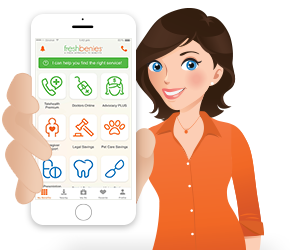Top 3 Reasons Employers Offer Benefits
Why do your clients offer an employee benefits program? This is an important question because the way you approach it will impact your recommendations and business. Some think of their employees as family members and want to make sure they’re taken care of. Others do it to avoid the ACA’s employer mandate penalties.
I’ve been in this industry for more than a few years and with all the craziness that’s gone on, I think it’s important to remember there are only a few reasons companies offer employee benefits. Most benefits fit into one of the following three categories and a few hit on all three…
#1. Recruitment and Retention
Yes, this is the big reason. In some industries, workers expect their employer to provide and employee benefits program that includes things like health, dental, and life insurance, so companies have to play ball if they want to compete for the best employees. In other industries, it’s not expected, so companies that do offer benefits have a competitive advantage. Either way, the goal is the same: to attract and retain employees.
The biggest benefit, of course, is health insurance, but other insurance products like dental, vision, and life insurance also fit into this category, as do retirement benefits like 401(k)s. When the employer is offering benefits as a recruitment and retention strategy, the number one concern (other than price) is whether the employees will like and appreciate the benefits being offered.
#2. A healthier, more productive workforce
One of the by-products of employee benefits programs that include health insurance is that they can actually increase worker productivity. Employees who get conditions taken care of early are less likely to have a prolonged absence, and employees who are in good health are usually more productive. While this isn’t the number one reason to offer health insurance, it is an important consideration.
In addition to health insurance, benefits like wellness programs, employee assistance programs, gym memberships, and even providing free healthy snacks can help reduce absenteeism, reduce presenteeism, and have a positive impact on worker productivity.
#3. The benefit pays for itself
Interestingly, some benefits are offered not primarily as a recruitment and retention tool and not to increase worker productivity but rather because the benefit actually pays for itself.
It is worth mentioning that most benefits don’t pay for themselves, so it’s actually difficult to offer good examples.
Even so, let’s take wellness programs: some workers will appreciate a good one and these programs certainly can help increase worker productivity. But, the main reason employers offer them to employees is because, if successful, it will pay for itself. From a budget standpoint, the benefit can have a positive ROI.
Another example of a benefit that pays for itself is a back-end HRA. Employers that purchase a higher-deductible plan and then self-fund a portion of the deductible with a Health Reimbursement Arrangement often find that they can provide a high level of benefits to employees and their family members while also saving money if the group has a good year.
In general, employers offer benefits because they’re good for the employees; if there’s a positive financial return from them, that’s just the icing on the cake.
SOME benefits accomplish all three goals
While most benefits accomplish one or, at most, two of the goals employers have when introducing a new employee benefit, there are very few that accomplish all three. These shining stars can definitely increase worker productivity while improving morale AND being budget neutral (or even better).
- Telehealth: Instead of missing work to go to the doctor or take a sick kid to a doctor, an employee has the opportunity to pick up the phone, call a doctor, and get a prescription if necessary. In some cases, without a consult fee, which makes employees even more happy and apt to use the service!
- Online Doctors: If the employee instead has a medical concern and wants to ask some questions of a specialist, she can do that. This is a lot better than her searching the Internet while at work and trying to self-diagnose her condition and brings immense peace of mind.
- Advocacy: Finally, employees who need some help navigating the healthcare system, shopping around for lower-cost services, or negotiating out-of-network claims can get assistance from an expert advocate rather than bugging the HR department about it.
Employee benefits programs that feature these services are especially great for companies that are self-funded or experience rated: the telehealth and doctors online services can divert urgent care and ER visits that would have otherwise been paid by the insurance company or the employer; the advocacy service can direct employees to lower-cost providers and help identify and correct common billing errors.
I recently had the opportunity to attend a health and safety fair in Fort Worth for one of our large group freshbenies clients. If you don’t know, freshbenies bundles many of these services into one card. The majority of employees who stopped by our booth said they’d used the benefits we offer, many had used their freshbenies card multiple times and all had positive comments. While most brokers would hesitate to ask, “So, how’s your health plan going?” in a group meeting, I’m never afraid to ask how people like our services because I know I’m going to hear several positive testimonials.
Final Thoughts
Putting it all together, employers have very specific reasons for offering employee benefits programs, and it’s the broker’s job to search for solutions that will help their clients achieve their goals. Those who can do that better than their competitors will win a lot of business, so keep this in mind when you’re designing a benefits package for your group clients. Forward-thinking brokers can offer solutions that not only help attract and retain quality employees but that also increase worker productivity while reducing claims costs – a win-win-win!















